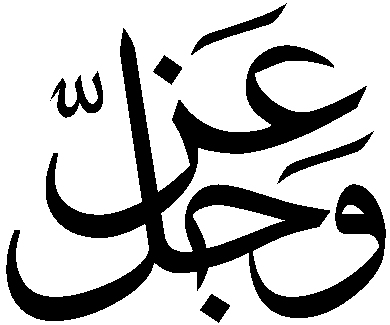On the Importance of Saying: 'I don't know'
In the Name of God, the Most Gracious, the Most Merciful
The Prophet Muhammad ![]() said,
said,
"Allah does not withdraw knowledge by extracting it from the hearts of men, rather He takes away the religious scholars. When no religious scholar remains, people take the ignorant as their leaders; these ignorant ones are questioned and give religious verdicts without knowledge. They are astray and lead others astray."
Bukhari, hadith no. 100, 7307
Source: The Heirs of the Prophets (peace be upon them) by Ibn Rajab al-Hanbali translated by Imam Zaid Shakir (page 10).
Imam 'Ali (may Allah be pleased with him) said, "Do not fear anything except your sins. Do not long for anything other than your Lord. Let no one of you lacking in knowledge be too shy to ask until he learns. Do not let one who is asked something he lacks knowledge of refrain from saying, 'I do not know.'"
Compound Ignorance
"... The Ulema have divided ignorance (jahl) into two types: jahl basit (simple), and jahl murakkab (complex).
Jahl basit is basic unawareness - "I do not know." This is a minor problem in the sense that it is easily remedied and replaced with knowledge given the proper steps summed up by the act of asking.
Even a superlatively knowledgeable person such as Imam Malik, will - or rather, must - at times say: "I do not know" and defer the matter to those who know, by asking.
Ibn `Umar would bless the day in which he admitted not to know something. For to say "I do not know" is in itself a proof of one's knowledge that one knows something and ignores many things, as the maxim goes, "`Alimta shay'an wa jahilta ashya'."
Jahl murakkab, compound ignorance, is by far the real problem.
...the disease of those who say: "I do know, I do know, I do know" and they know less than nothing.
Of beneficial knowledge they are completely deprived, and mostly possess useless knowledge. This is not due to the nature of their material but to the disease in their hearts, ego pushing them into denial and obduracy beyond limits of which they themselves have no idea. Wal-`iyadhu billah."
Source: Article: Compound Ignorance (Jahl Murakkab) by Shaykh Gibril Haddad - http://www.livingislam.org/compig_e.html
Source: Page 22 - Treatise for The Seekers of Guidance - Imam Muhasibi - translation and commentary by Imam Zaid Shakir
Imam Malik may Allah be pleased with him
(One of the Four Greatest Imams of Sacred Law) b.93 A.H
"His piety was such that he was never too proud to say he did not know when asked about matters he was not sure of..."
Source: Biographical Notes pg. 1069 - Reliance of the Traveller by Ahmad ibn Naqib al-Misri translated by Shaykh Nuh Ha Mim Keller
Al-Haytham said: "I heard Malik being asked forty eight questions, to thirty-two of which he replied: ëI do not know.í"
Source: Article: Imam Malik - by Shaykh G.F Haddad
"In the absence of such a teacher, then with a study circle based on humility and the ability to say "I don't know" when it matters."
Source: Page 1 of Agenda for Changing Our Condition by Shaykh Hamza Yusuf
The full paragraph is below:
Practical Steps for Changing Our Condition
1. Form a serious study group to learn the five pillars properly and thoroughly.
Practice what you learn as you learn it. When this is mastered, move on to the rules of marriage, buying and selling, and other relevant sections of sacred law.
Commit to a systematic study of the Arabic language, especially the science of tajwid. Study at least one traditional text on the science of purifying the heart and practice the excercises given to remove the blemishes of the soul. All of these are preferably with a capable teacher, licensed to teach by recognized scholars. In the absence of such a teacher, then with a study circle based on humility and the ability to say "I don't know" when it matters.
'Al-Shafi`i's statement also demonstrates this, "I witnessed Malik being questioned on forty-eight matters, he responded to thirty-two of them with, "I do not know.'"
Whoever seeks other than the countenance of God with his pursuit of knowledge will not permit himself to admit that he has no knowledge of a topic.
Source: AL-GHAZALI Kitab al-`ilm
The Book of Knowledge - Book 1 of the Ihya `ulum al-din
The Revival of the Religious Sciences
Translated from the Arabic with an Introduction and Notes by Kenneth Honerkamp with a forward by Hamza Yusuf Hanson
"How do we obtain the knowledge of our religion? We obtain it by asking others. Mujahid, who was one of the great Qur'an commentators from the second generation of Muslims, said, "The shy one and the arrogant one will never attain knowledge." Why? Because the shy one is prevented by his or her shyness from asking, and the arrogant one thinks he already knows everything. He is usually described as one afflicted by compounded ignorance. He does not know and he is too ignorant to even realize that he does not know."
One of the great virtues of the early generations of Muslims was that they would not be too shy or arrogant to seek knowledge of the issues they were ignorant concerning. If they found no means to address their ignorance they would respond to an inquiry by simply saying, "I do not know."
Imam al-Mawardi, one of the great scholars of the Muslims, relates a story where he was forced to concede he did not know the answers to a series of questions put to him by two desert Arabs. He relates that Ibn 'Abbas said, "If a scholar stops saying, 'I do not know,' he has met his fatal affliction." A scholar mentioned, "One who stops saying, 'I do not know,' is ruined."
The willingness of people possessing true knowledge to readily admit their ignorance arises from their desire not to speak about issues related to God's religion without possessing sure knowledge. They know that speaking without knowledge is a grave sin. It has been related that the Prophet, peace upon him said, "Whoever is given a baseless answer to a question; the sin is on the one who answered him."
Source: Page 23 (Imam Zaid Shakir) - Treatise for The Seekers of Guidance - Imam Muhasibi - translation and commentary by Imam Zaid Shakir
Imam 'Abdallah 'Alawi al Haddad (may Allah spread his benefit) said,
"Teaching children as well as others is required and encouraged by Law on condition that one possesses the knowledge and has sincerity with God the Exalted. Knowledge here means to teach what you know and keep silent about what you do not know, for God does not like those who pretend and the sin of the one who speaks of what he does not know is greater than that of the one who speaks not what he knows..."
Source: The Sublime Treasures - Answers to Sufi Questions by Imam al-Haddad translated by Mostafa al-Badawi - Pg. 111
9
Shaykh Hamza Yusuf (may Allah spread his benefit) said,
"... not everyone has the requisite qualifications to make Amr bil Ma'ruf and Nahi 'anil Munkar and Da'wa ilal Khayr - not everybody has those gifts. And one of the signs of our age is that we have a lot of people speaking in the name of Islam and really doing more harm than good. And part of it is not recognising our own human capacities - not learning "La Adri" which was a traditional knowledge that was taught in the schools - how to say "I don't know." Imam Malik said it was half of knowledge. It used to be something people learned and it was a sign that somebody was rightly guided that they said "I don't know.""
Source: Audio Lecture by Shaykh Hamza Yusuf entitled "Family Life in Islam"
Note: Amr bil Ma'ruf and Nahi 'anil Munkar - general meaning is to enjoin good and to forbid evil.
Reluctance in Giving Religious Verdicts
The early Imams were cautious about speaking about [the lawful and the unlawful], because one who speaks about such matters is relating information from Allah, enunciating His commands and prohibitions, and passing on His sacred law. It was said about Ibn Sirin, "If he was asked about something regarding the lawful or the unlawful, his color would change. He would be transformed until no longer seemed the same person." Ata' ibn al-Saib said, "I met people who, when asked for a religious verdict, would tremble as they spoke." It is related that when Imam Malik was asked about a legal matter, it was as if he were suspended between Heaven and Hell.
Imam Ahmad was extremely hesitant to speak on the lawful and unlawful, to claim that something was abrogated, or related matters which others would too readily expound. He frequently prefaced his answers with phrases such as, "I hope that...," "I fear...," or "It is more beloved to me...." Imam Malik and others used to frequently say, "I do not know." Imam Ahmad would often say on an issue about which the righteous forbears has various opinions, "The most likely answer is, 'I do not know.'"
Source: Page 21 - The Heirs of the Prophets (peace be upon them) - Ibn Rajab al-Hanbali (translated by Imam Zaid Shakir)
to be continued insha Allah...
Compiled by: Irshaad Ahmad Rashid







